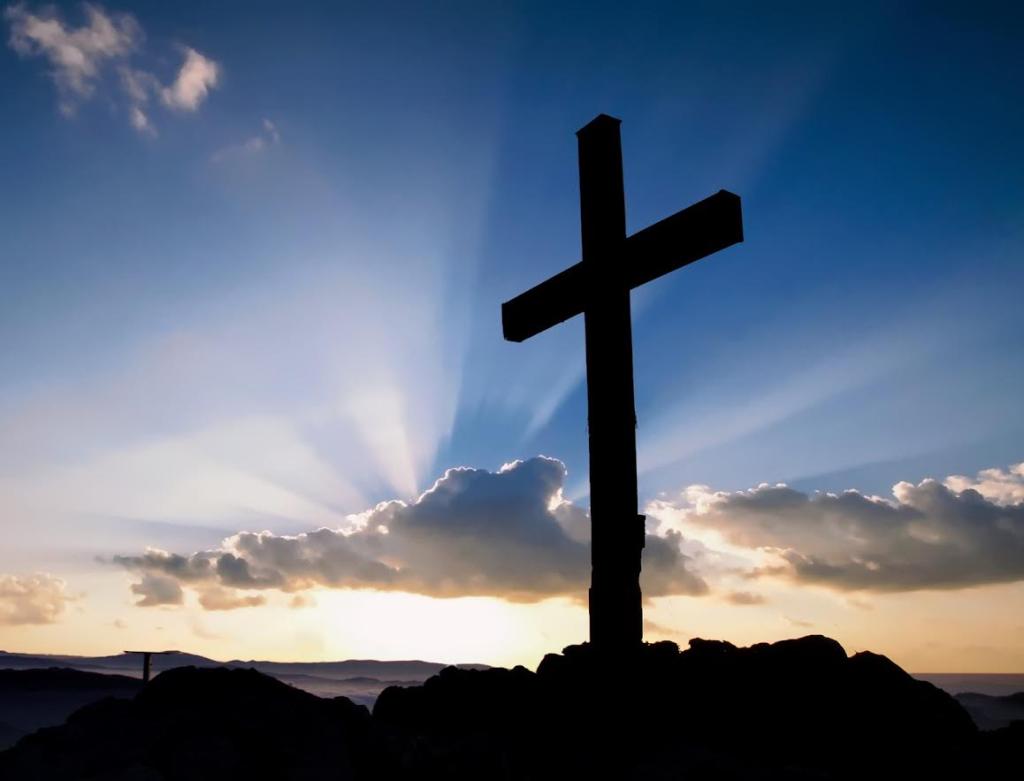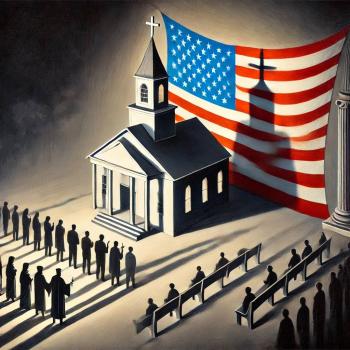
There Are Signs We Are
As the U.S. 2024 presidential election draws ever closer, at least two positive changes may be occurring. The far-right extremist, white evangelical voting block may be beginning to crack, and at the same time, some post-evangelicals are pulling away from politics. The nation may finally be moving away from extremism and toward a new post-evangelical era.
That’s according to new data and CNN’s new article, Post-evangelicals Shift Away from Faith Tied to Republican Politics.
Moderate and progressive Christians can only hope….
The White Evangelical Voting Block
White extremist evangelicals began gaining ground in the late 1970s and early 1980s and reached their peak of power when the Supreme Court struck down Roe vs. Wade. They won that battle, but they want more.
Do the rest of us? It’s doubtful. Rather, it’s time for the nation to turn away from evangelicals’ extremism, holier-than-thou attitudes and determination to force their beliefs on everyone else. It’s time the country welcomed a new post-evangelical era and began repairing the hate-fueled damage evangelicals have caused.
One of my earlier posts, “Abortion, GOP Politics & Political Expediency,” offers a non-academic person’s overview of the evangelical movement’s rise to power. It also describes how the GOP and conservative Christians formed an unholy alliance.
Daniel Henderson’s post on Patheos, Christian Nationalism Is Idolatry,” describes his front-row seat to evangelicals’ raw quest for power and their worship of it. The situation sickened him to the point he left the Republican party and the Christian faith.
“They want power because they feel their historically privileged position slipping away toward demographic reality,” Henderson wrote. “White Christians mistakenly believe that their weakening privileged status is persecution. Making room for a multi-religious democratic culture has never been part of white Christian America.” Well said.
Another insightful article on these issues is The GOP’s Double Standard on Christianity by Patheos contributor Libby Anne. She writes, “The Republican party has so many double standards that I sometimes feel like I am seeing double.”
An example she offers is U.S. Sen. Marco Rubio’s objection to a sermon by the Rev. Raphael Warnock in 2020. Both men are U.S. senators. Rubio is a Republican from Florida, and Warnock is a Democrat from Georgia.
Warnock’s sermon concerned Mattew 6:24, which warns, “No one can serve two masters, for either he will hate the one and love the other, or he will be devoted to the one and despise the other.”
Those words come straight from the Bible. Yet, Rubio called Warnock — and by extension, the Bible – crazy and radical. I daresay Rubio would have said nothing had Warnock been Republican.
Shrinking Power
The word “evangelical” covers a great deal of territory in terms of demographics, but evangelical voters have tended to stick together. In 2016, about 80 percent voted for Donald Trump, and in 2020, despite his disastrous presidency, 76 percent continued to support him, CNN exit polls showed. If he wins the 2024 election, he will have evangelicals to thank, and many of the rest of us will have them to blame.
Yet, there may be good news on the horizon. CNN pointed out in its post that the evangelical voting block is shrinking.
Between 2006 and 2023, the number of White evangelicals dropped from 23 percent to 13 percent, while the number of those with no religious affiliation rose from 16 percent to 27 percent, according to the Public Religion Research Institute’s 2023 Census of American Religion Census of American Religion.
Each percentage point represents millions of Americans, which makes these changes significant.
A Changing Landscape
Randall Balmer, an Episcopalian priest and religion professor, was quoted by CNN as saying one reason for the decline in white evangelicalism is the growing generational divide between younger and older evangelicals who have different ideas about abortion and LGBTQ rights.
“For the older generation, they were really big into the anti-abortion movement, (and) they were opposed to changes in sexual identity politics….” he explained. Those issues don’t resonate with the younger generation “as I’ve encountered them.”
CNN reported that “it’s unclear how many people have left the evangelical church for post-evangelical faith communities. The Post Evangelical Collective – a network of churches and academics – has about 100 member congregations on its website of various sizes spread across the country, primarily around major cities.”
After the Evangelical Movement
David Gushee, author of After Evangelicalism and ethics professor at Mercer University, argues, “There’s a new movement of post-evangelicalism.”
He points out that 25 million people who were raised in evangelical homes have either embraced different faith traditions or have walked completely away from religion, as determined by the “massive” Pew Research Center’s Religious Landscape study. That’s a significant base for a new post-evangelical era.
Gushee added that the research is 10 years old, but he doesn’t see a decline in the 25 million estimate. He sees the opposite. “I wouldn’t be surprised if that 25 million number hasn’t doubled,” he said.
He points to the “rapidly declining membership of the Southern Baptist Convention, the birth of communities of post- and ex-evangelicals, even the discontent and outcry about religious trauma and spiritual exploitation seen in documentaries like ‘Shiny Happy People,’ ‘The Secrets of Hillsong,’ and ‘The Grove’…. (and) the formation of the Post-Evangelical Collective.
“However you look at it, that’s a lot of people who are no longer attached to the world that spiritually formed them,” Gushee said. “Where do they go now? What do they do?”
“Conscientious Objectors”
Gushee calls people who have left evangelicalism “conscientious objectors” and says they feel a sense of loss of community. He’s in a position to know because he is one of them. Read his post here.
“The need to distance ourselves from the maze of evangelicalism’s biblical inerrancy, indifference to the environment, purity culture, racism, LBGTQ discrimination, male dominance, and Christian nationalism has left so many of us with a challenge to re-establish spiritual community,” he explained.
My take is this: Gushee has identified some of the major negatives that alienate many non-Christians and moderate and progressive Christians. There are other important reasons for Christianity’s decline, of course, but it’s difficult for a faith tradition to grow in the face of so many major negatives. In many cases, the negatives are strongly rooted in differing interpretations of Scripture.
What’s the next step for these conscientious objectors? Gushee believes that post-evangelicals need to start talking to one another about the problems within the evangelical culture.
Doing so will help them “face our past and begin to find our way to a Christianity, a spirituality, and a community we can imagine for the future,” he said.













